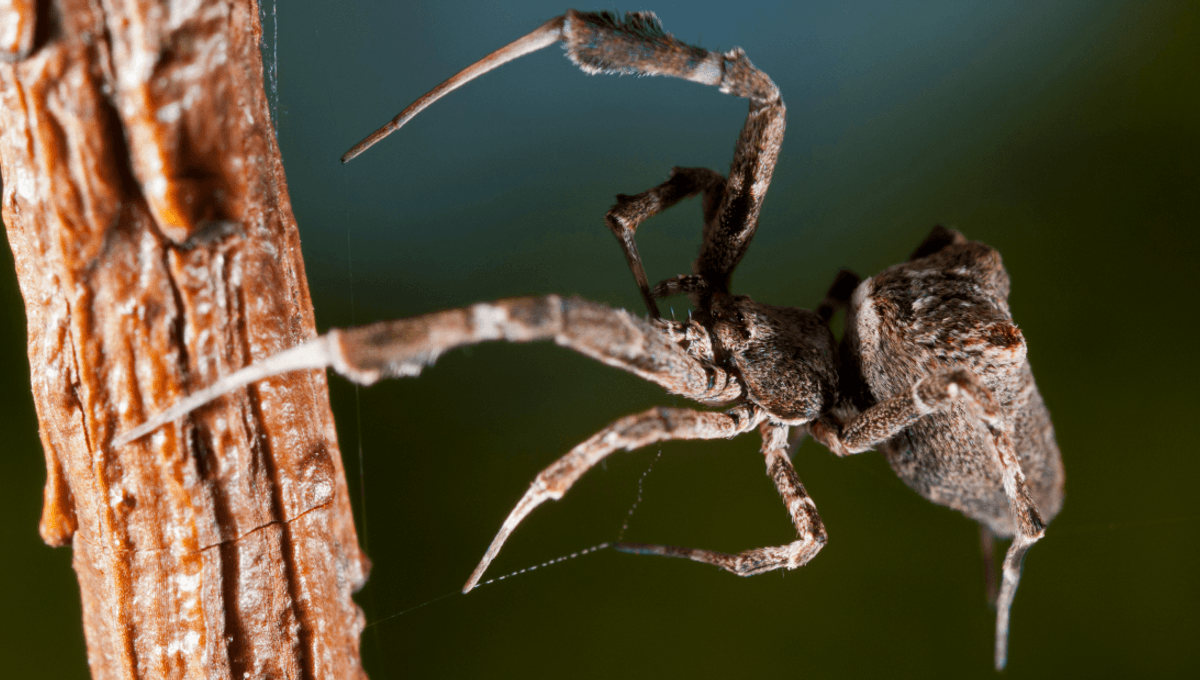
Imagine, if you will, you are a fly. Out for a stroll when lo! A strong, sticky substance has you ensnared: a spider’s web, built by the eight-legged giant on its way to kill you. You ready yourself for the fatal bite, fangs puncturing your tissues and delivering a mercifully lethal dose of venom, only to find yourself covered in vomit. What the…
These are the unfortunately final moments of victims of the Uloboridae spiders, a family of orb weavers that, unlike almost all other spiders, don’t inject venom. Without their own built-in lethal injection, they’ve adapted to instead wrap their prey tightly in silk before regurgitating digestive fluids until the prey package is suitably dead and slurpable.
A grim fate we’re reasonably clued up on, but whether or not the lost venom toxins had been repurposed elsewhere wasn’t known for certain. A new study decided to find out by looking at the spider species Uloborus plumipes, using histology and multi-tissue transcriptomics to see if it really is missing its venom glands, and what venom toxins are detectable across different parts of its body.
Histological analyses were able to confirm for absolute certainty that these spiders lack venom glands in the prosoma, an area you might think of as part of their head since spiders only have two main body parts. There was also no sign of an exit hole at the tip of their fangs, demonstrating they are well and truly venomless, but what about the toxins?
Inspection of the digestive fluids revealed that there were indeed venom components present, but this isn’t unique to Uloboridae. We see similar proteins in the stomach goo of spiders from other groups like the golden orb-weaver, Nephila cruentata; the Brazilian white-knee tarantula, Acanthoscurria geniculate; and the velvet spider, Stegodyphus mimosarum. We’ve also found digestive enzymes in some spiders’ venoms, so it’s a bit of a mish-mash.
An explanation for this could be that it’s a kind of safety net approach whereby spiders hedge their bets in successfully immobilizing prey with a two-pronged approach of potent (sometimes digestive-y) venom and toxic enzymatic regurgitates. Something that could be very important for spiders that have recently deployed venom and are still waiting for their stocks to replenish. So, what does this mean for our venomless spiders?
“We propose that Uloboridae spiders have not evolved novel toxic secretions but rather altered how existing secretions are deployed,” wrote the study authors. “Unlike typical spiders, which regurgitate digestive fluids only near their own mouthparts after venom injection, uloborids exhibit a unique feeding behaviour. They wrap their prey extensively in silk and cover the entire silk package with digestive fluids. It is only after the application of digestive fluids that prey death occurs. We can think of this external application of toxin secretion as mimicking the internal diffusion of venom.”
“A key question remains: do uloborids digestive secretion contain neurotoxins capable of paralysing prey? And if so, are these toxins unique to Uloboridae, or shared with venomous species?”
As we wait for answers, just be thankful you’re not a fly.
The study is published in the journal BMC Biology.
Source Link: These Spiders Vomit Their Victims To Death, Regurgitating Toxic Goo Until It's Dinner